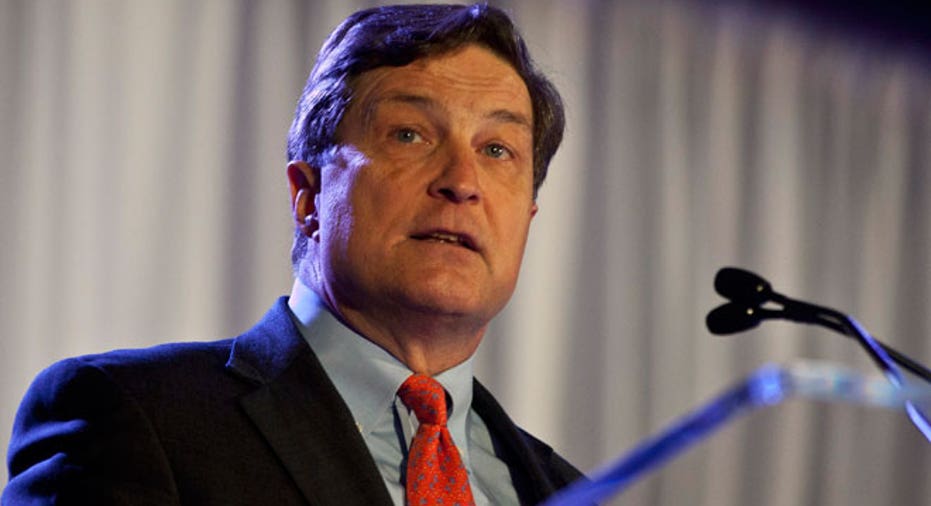Fed's Lacker: Rein in Fed Lending

Dissenter Jeffrey Lacker, a voting member of the Federal Open Market Committee, which sets most U.S. fiscal policy, said Tuesday that legislation may be needed to rein in the central bank’s broad lending powers.
Lacker, president of the Federal Reserve Bank of Richmond, in September cast the lone vote against the Federal Reserve Board's latest round of stimulus and has been a vocal opponent of the loose fiscal policies supported by Fed Chairman Ben Bernanke and a majority of the voting FOMC members since the economy nearly collapsed in 2008.
Tying Fed policy directly to the U.S. housing market, Bernanke and his FOMC supporters approved a third round of quantitative easing in September in which the Fed began buying $40 billion in mortgage-backed securities each month.
Since mid-2008 the Fed has nearly tripled its holdings of U.S. backed securities, purchasing the bonds in an effort to add liquidity to and stimulate the U.S. economy. In addition, the Fed has lowered interest rates to near zero rates and promised to keep them there until the economy has recovered.
In a speech Tuesday morning in New York, Lacker said lending limits imposed on the Fed by the sweeping banking reform legislation known as Dodd-Frank are too “modest.” He supports a more limited role for the Fed, and suggested Congress may have to step in to achieve that goal.
“The process of establishing credible limits on central bank lending could be even more difficult than the pursuit of price stability,” Lacker said in prepared comments released to the media. “Whether self-imposed lending constraints could be effective remains to be seen.”
Lacker, a long-time inflation hawk who has repeatedly warned that prolonged loose fiscal policy could unleash runaway price surges, said the alternative to “self-imposed restraint” is Congressional action.
“One could imagine legislation that limits the Fed to a narrowly defined set of ordinary lending activities — very short-term lending to sound, solvent banks, against good collateral, at rates above interbank market rates,” he said. “If the Federal Reserve cannot limit credit policy of its own accord, legislation may be the best option. And the restraint of credit policy would not be complete unless limits on reserve bank lending are complemented by limits on the Fed’s ability to buy private sector assets.”
Lacker concluded his comments by noting that central banks should not try and should not be expected to solve the world’s fiscal ills. Indeed, central bank’s could use a dose of “humility,” he said.
“I believe that future financial stability will depend similarly on central bank modesty about its ability to redirect credit flows constructively. The independence and effectiveness of the modern central bank will require limiting aspirations,” Lacker said.



















